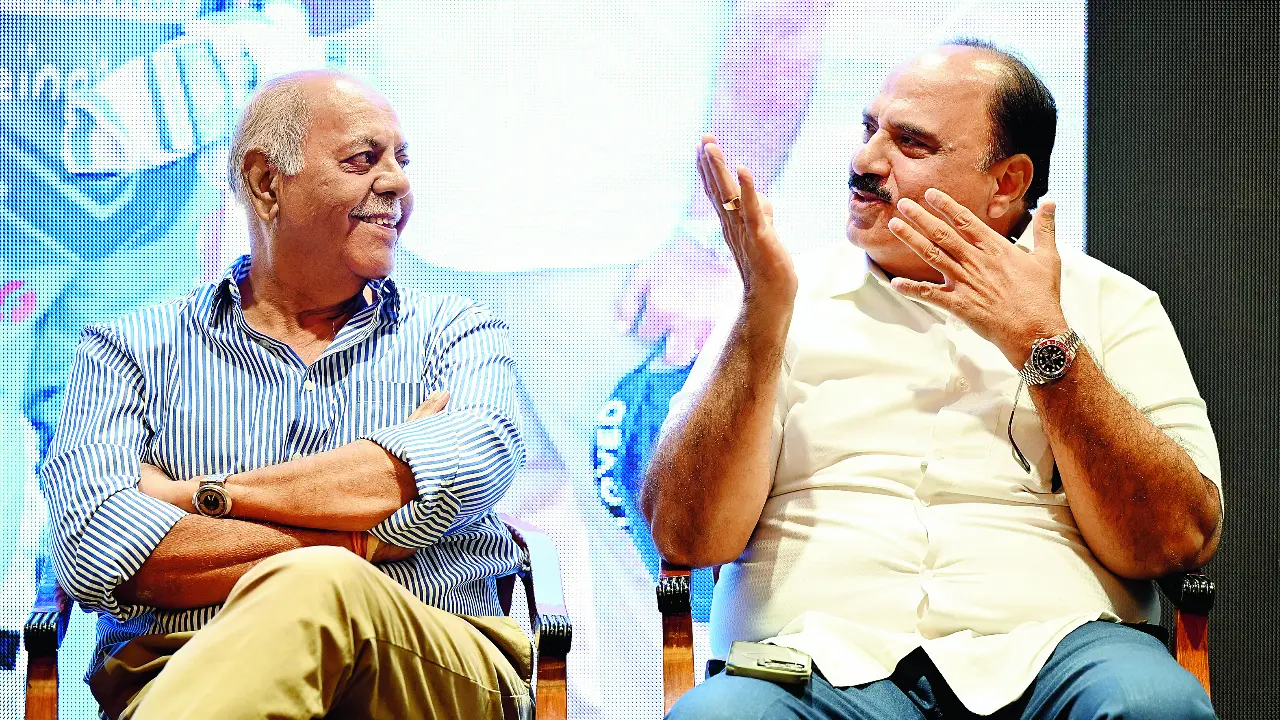Mumbai is the city of opportunity, and it is not just its streets but the cricket maidans and pitches too, that are paved with gold. Yajurvindra Singh was Chief Speaker at ‘Voice of Cricket,’ an event held at Cricket Club of India’s (CCI) CK Nayudu Hall on Monday evening. The event was organised by Nadim Memon, secretary Mumbai School Sports Association (MSSA).
Yajurvindra rewound to 1973 when he first came to Mumbai. “I came to Mumbai in 1973. I had played Ranji Trophy before that against Mumbai. I remember coming out to bat and passing legends like [Ajit] Wadekar, [Dilip] Sardesai. It was intimidating to say the least. I recall getting out for one run in a Ranji Trophy match at the CCI. The commentator, who was Vijay Merchant at that time, came up to me and said: ‘Can you bat a little longer? I wanted to actually introduce you and talk about your background in my commentary. But you got out’,” he said to laughs from the audience.
Yajurvindra or ‘Sunny’ as he is nicknamed, added that after arriving in Maximum City in 1973 and playing here, he not only got his physical, but mental game on too: “The depth of competition, the toughness of the game here, the names, the fame, the examples these cricketers were, it all made me mentally khadoos. The competition taught me to value my wicket and what I was standing there on the pitch for. I remember Sunil Gavaskar played through in a Ranji Trophy match in Nashik with a fractured finger! That was the mettle of the man and in a larger perspective, of Mumbai cricket.”
About the present Yajurvindra said, “There is so much cricket now. Two years ago, I went to Spain as chief guest for a T-10 cricket tourney, which was the European Cricket League with 36 European sides. Cricket in Spain! That is what we call development of the game and transformation too. Development is good and change is inevitable. One way cricket overall has changed is that it is now a business and a profession.”
Yajurvindra also highlighted two areas of concern. “Earlier, we had scenarios like these: if you were studying, had graduated and played first class cricket then, you got a good job and were set in life. University cricket was so important, even more than Ranji Trophy. Today, with schedules being what they are, there is no time to do both — study and play. The education part is disappearing. Then, today’s not-a- minute- to- breathe cricket calendars result in immense mental stress. Jemimah Rodrigues spoke about the mental aspect. Those two areas need to be looked at,” concluded Singh.
Another panellist, former women’s player Anjali Pendharkar spoke about the need for a robust grassroots training system for women players. “It is from there that we get our Harmanpreet Kaurs,” she said in reference to having more inter-school competitions for girls.

